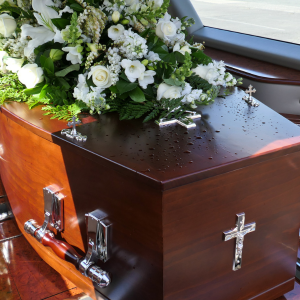|
Do I have to have a funeral?
 Do I have to have a funeral? We encounter this question more regularly these days when people make or update their Wills. It may be that there’s now far less societal pressure for a formal ceremony when someone passes away. Or perhaps cost is a factor – an average funeral in the UK costs around £5,000.
Do I have to have a funeral? We encounter this question more regularly these days when people make or update their Wills. It may be that there’s now far less societal pressure for a formal ceremony when someone passes away. Or perhaps cost is a factor – an average funeral in the UK costs around £5,000.
The simple answer is there’s no legal requirement to hold any form of ceremony when you die. But although it’s very much a personal decision, it’s one that those closest to you may find difficult to accept. A funeral is often seen as part of the grieving process. Or at least an opportunity for family and friends to come together to say goodbye.
Check out our helpful guide and checklists: What to do when someone dies. |
Legal requirements when someone dies
Following registration of the death, burial or cremation is a legal requirement unless the deceased has donated their body to medical science. Direct cremation is the chosen method in most cases where there’s no funeral, with the ashes returned to the next of kin for disposal.
Following his death in 2016, publicity concerning David Bowie’s choice of direct cremation was a turning point in the practice becoming more acceptable. Your local funeral director can advise on and arrange direct cremation.
How much is direct cremation?
According to research published by Sun Life, the average cost of direct cremation is £1,647, whereas the cost of an average basic funeral is £4,056.
Can you be cremated without a coffin?
For those seeking the ultimate in simplicity, cremation without a coffin is theoretically possible. However, as the law requires a body to remain covered in public, direct cremation invariably involves at least a simple container, possibly of cardboard. A container also makes the job of handling and moving the body easier.

